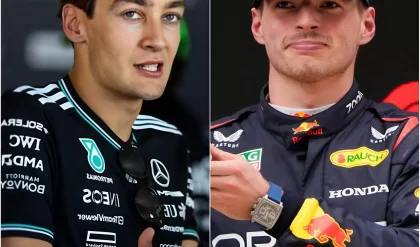The announcement of Paapa Essiedu as Severus Snape in HBO’s upcoming Harry Potter television series has stirred a cauldron of controversy, with J.K. Rowling at the center of the storm. The author, who serves as an executive producer, has reportedly expressed mixed feelings about the casting, reflecting on the iconic performance of the late Alan Rickman, who defined Snape in the original film series from 2001 to 2011. Rowling’s nostalgia for Rickman’s portrayal, coupled with her perceived sigh over Essiedu’s casting, has fueled debates about the decision to cast a Black actor in a role traditionally depicted as pale and gaunt. Critics, particularly on platforms like X, have accused HBO and director Mark Mylod of injecting “woke” elements into the Wizarding World, while others defend the choice as a bold reimagining of a beloved character.
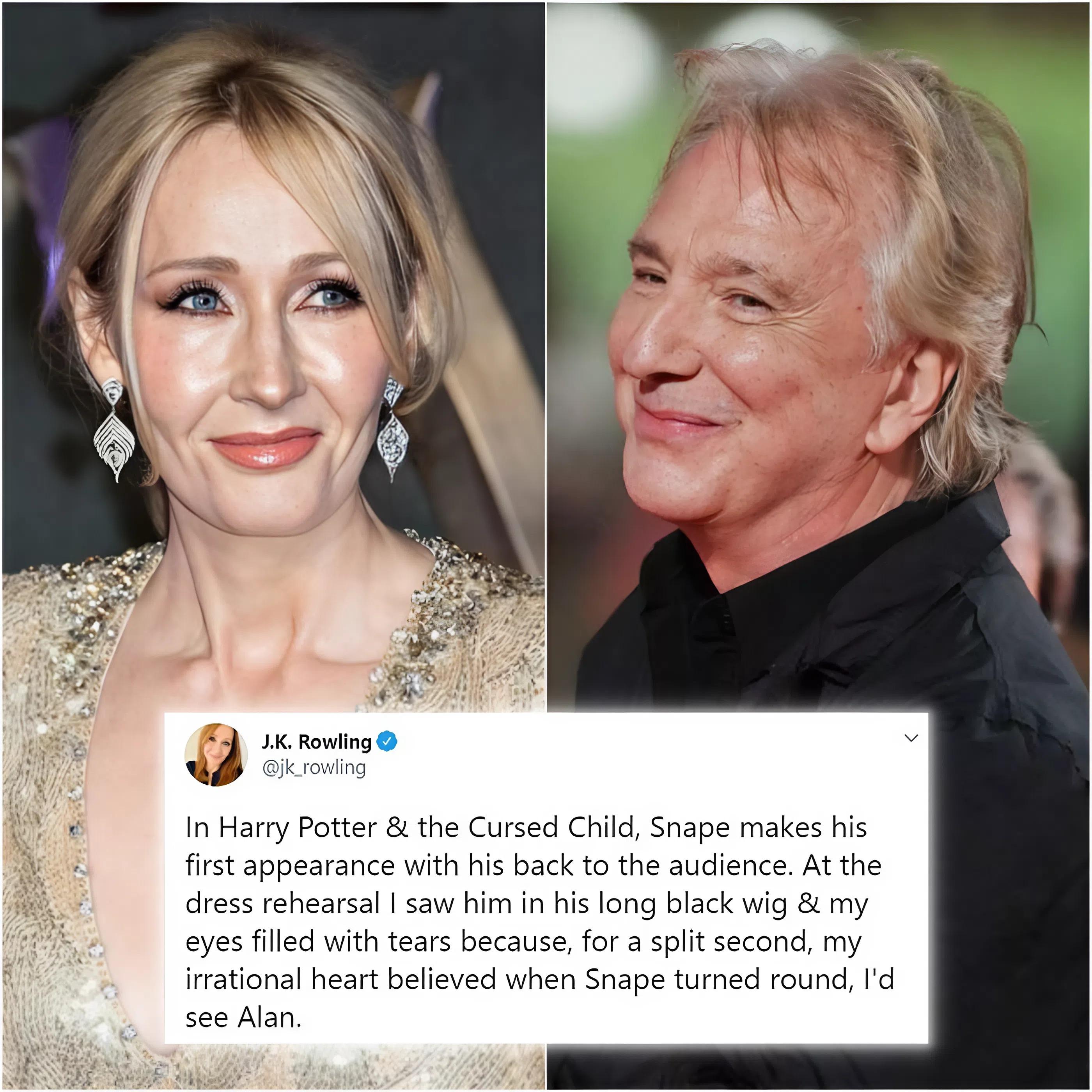
Rowling’s sentiments, as reported by sources close to the production, highlight her deep connection to Rickman’s Snape, whose sallow skin, greasy black hair, and brooding intensity became synonymous with the character. In a May 2025 post on X, Rowling praised Rickman’s ability to capture Snape’s complexity, describing him as “irreplaceable” in the role. Her comments came amid speculation about Essiedu’s casting, which was confirmed in April 2025 by HBO, alongside John Lithgow as Dumbledore and Janet McTeer as McGonagall. While Rowling has publicly stated she lacks the authority to fire Essiedu and wouldn’t do so over differing views, her wistful remarks about Rickman have been interpreted by some as a subtle critique of the new direction, particularly given her history of clashing with progressive ideologies.
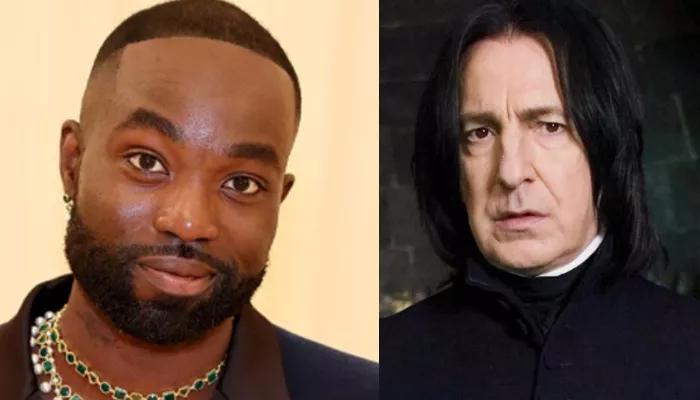
The backlash against Essiedu’s casting has been fierce in certain corners of the fandom. Social media posts, particularly on Reddit’s r/CriticalDrinker, argue that Snape’s canonical description—pale, hooked-nosed, and socially ostracized—makes Essiedu’s casting a departure that risks altering the character’s essence. Some fans, citing Rowling’s own words in Harry Potter and the Half-Blood Prince, where Snape is described as having “sallow skin” and “greasy black hair,” claim the decision prioritizes diversity over fidelity to the source material. They point to the narrative implications, noting that a Black Snape could shift the dynamics of his backstory, particularly his bullying by James Potter, which some argue carries uncomfortable racial undertones in a 1970s Hogwarts setting. Accusations of “woke” casting have also targeted Mylod, whose work on Succession contrasts with the fantastical tone of Harry Potter, raising questions about his vision for the series.
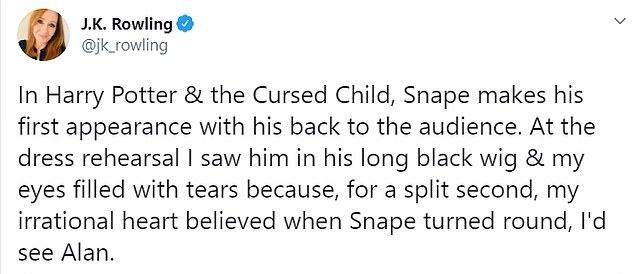
Yet, defenders of Essiedu’s casting, including original Harry Potter star Jason Isaacs, have pushed back against the criticism. At FanExpo Denver in July 2025, Isaacs, who played Lucius Malfoy, called the backlash “racist” and praised Essiedu as “one of the best actors I’ve ever seen.” Supporters argue that Snape’s physical appearance is secondary to his emotional depth—a tormented antihero driven by love and redemption. Essiedu, known for his Emmy-nominated role in I May Destroy You, brings a commanding presence that could reinterpret Snape for a new generation. Articles in The Guardian and Grazia have suggested that a Black Snape could enrich the character, emphasizing themes of prejudice and alienation already present in Rowling’s work, particularly through his “half-blood” status in a world obsessed with blood purity.
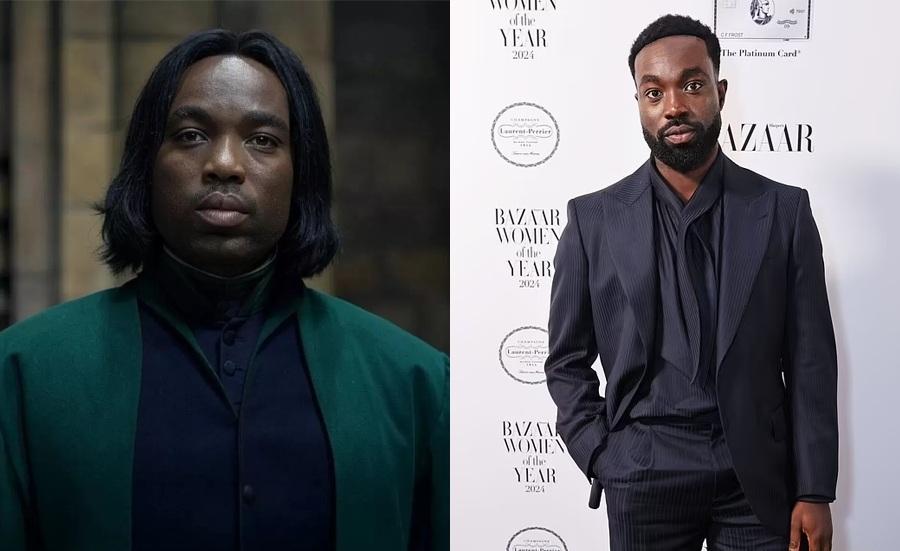
Rowling’s own stance remains nuanced. In a May 2025 statement on X, she clarified, “I don’t believe in taking away people’s jobs or livelihoods because they hold legally protected beliefs that differ from mine,” addressing Essiedu’s signing of a pro-trans rights letter that conflicted with her views. This has led to accusations of hypocrisy from trans activists, who criticize Essiedu for working on a Rowling-associated project while supporting their cause. Meanwhile, conservative fans decry what they see as a betrayal of Rickman’s legacy, with posts on X labeling the casting as a “woke” misstep by HBO to appease modern audiences. The controversy underscores the challenge of adapting a cultural juggernaut like Harry Potter in a polarized climate.
As the series, set to premiere in late 2026 or early 2027, moves toward production, Essiedu faces immense pressure to honor a character immortalized by Rickman while navigating a divided fandom. Rowling’s nostalgia for her original vision, coupled with HBO’s push for inclusivity, has placed Snape at the heart of a cultural tug-of-war. Whether Essiedu’s performance will silence critics or deepen the divide remains to be seen, but the debate has already cast a long shadow over the Wizarding World’s return.


